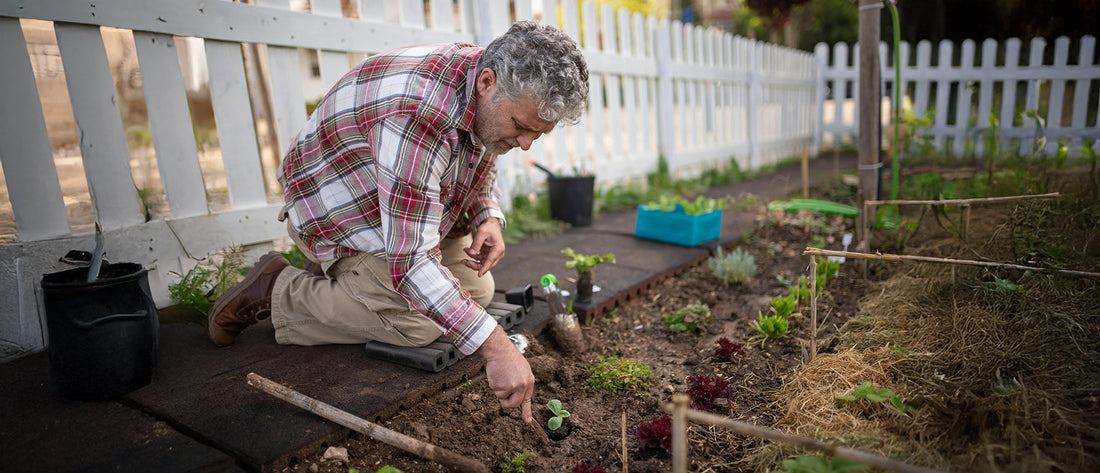
How to Plan Your Fall Garlic Bed
Share
Now is the perfect time to start planning your fall garlic bed! Whether you're mapping out rows in the garden or prepping a fresh plot, a little preparation now leads to a better harvest next summer.
How to Plan Your Fall Garlic Bed
1. Choose Your Garlic Varieties
 |
 |
Hardneck Varieties (Best for cold climates, complex flavors, easy to peel)
Music – A customer favorite! Large cloves, rich flavor, great for roasting and cold climates.
Chesnok Red – Excellent for baking and sautéing; holds shape and flavor well.
German White – Robust flavor, dependable yields, and strong cold tolerance.
Russian Red – Stunning purple skins, great roasting garlic with a strong rich taste.
 |
 |
Softneck Varieties (Best for milder climates, stores longer, tighter clove skins)
Inchelium Red – Mild, long-storing, and ideal for braiding.
California Early – Classic softneck with a smooth, mellow flavor.
Silver White – Excellent storage life and reliable yields.
 |
 |
For Bold Flavor Lovers:
Try Spanish Roja (a Rocambole hardneck) – spicy and robust, known for classic “true garlic” flavor.
Or Georgian Fire – packs serious heat and stores well for a hardneck.
New to Growing Garlic?
Start with Music or an assorted Growers Pack to explore a few favorites without the guesswork.

2. Pick the Right Location
Choose a sunny spot with at least 6–8 hours of direct sunlight daily.
Make sure the area has good drainage to avoid soggy soil and rot.

3. Prep the Soil
Remove weeds and work in compost or aged manure to enrich the soil.
Aim for loose, crumbly soil with a pH of 6.0–7.0.
Avoid planting where onions, garlic, or leeks grew last year.

4. Make a Bed Layout Plan
Plan rows about 6–8 inches apart with cloves spaced 4–6 inches apart in each row.
Consider using raised beds or mounded rows if your soil retains water.
 5. Plan Your Timing
5. Plan Your Timing
Garlic is typically planted in mid to late fall, about 2–4 weeks before the ground freezes.
Mark your calendar so you’re ready when the time comes.

6. Stock Up on Supplies
Gather mulch (like straw or shredded leaves), compost, and your garlic seed stock.
Order garlic early so it arrives in time for fall planting.

7. Plan for Mulching After Planting
After planting, you’ll need to mulch to protect garlic from winter cold, conserve moisture, and suppress weeds.
8. Sketch Your Bed or Make Notes
Draw your garlic bed layout or jot notes on your phone/notebook so you can plant quickly when fall arrives.
Happy planting!
